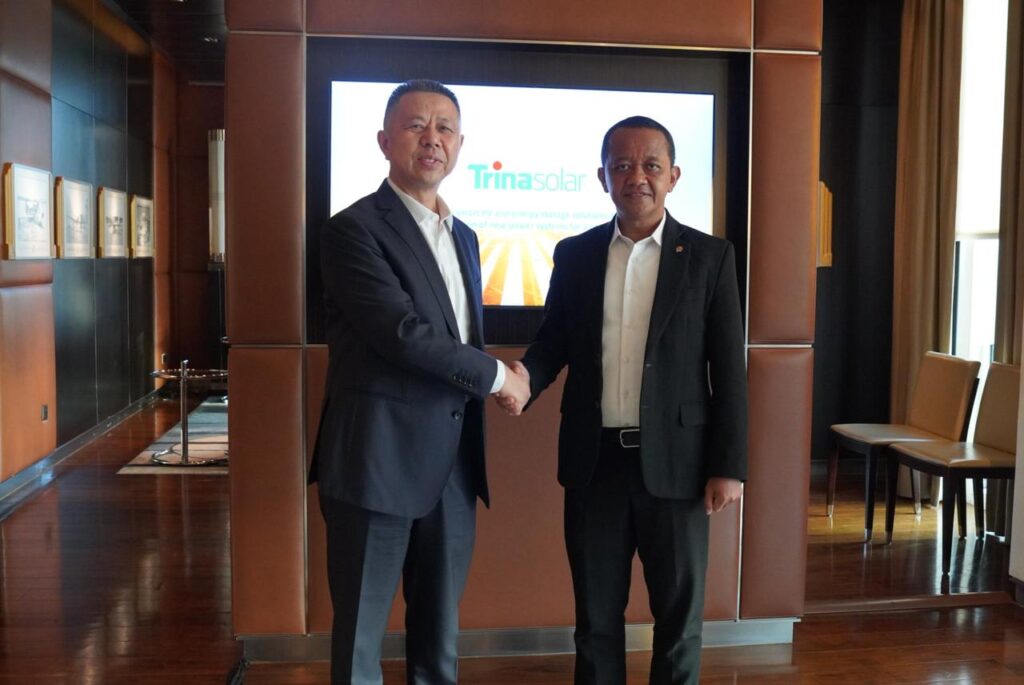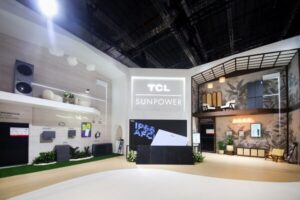During his visit to China, Minister of Energy and Mineral Resources (EMR) Bahlil Lahadalia held a bilateral meeting with the Solar Photo Voltaik (PV) production company, Trina Solar. The meeting with this company will expand cooperation in the development of the domestic solar energy supply chain and ecosystem, as an effort to realize energy security in line with the priority programs of President Prabowo Subianto’s Government.
“We know that Indonesia’s solar energy potential reaches thousands of gigawatts, so it is necessary to explore cooperation with solar PV production companies so that this large solar energy potential can be optimized to achieve energy security and self-sufficiency,” said Bahlil in China, Thursday (14/8) local time.
Indonesia has the potential for solar energy up to 3,294 Gigawatt Peak (GWp), but until December 2024, only around 912 Megawatts (MW) have been utilized. From this great potential, Indonesia has the opportunity to become a leader in the energy transition at the regional and global levels. Therefore, optimization is needed in planning the provision of cleaner and more reliable electricity.
One of the focuses of the talks was strengthening cooperation with PT Trina Mas Agra Indonesia (TMAI), a joint venture between Trina Solar and local partners operating in the Kendal Special Economic Zone, Central Java. TMAI was established in 2023 as Indonesia’s first tier-1 integrated factory for the production of solar cells and modules, with an initial capacity of 1 GWp per year and plans to expand to 3 GW in the next 2-3 years. The technology used includes the high-efficiency i-TOPCon N-type in its class
The presence of TMAI is expected to reduce dependence on imports of energy industry components in Indonesia and accelerate industrial downstreaming, including the creation of a domestic solar energy ecosystem and supply chain, both horizontally (supporting industries) and vertically (the manufacture of wafers and ingot-materials, generally silicon, used in the semiconductor industry, as well as the development of polysilicon smelters).
This cooperation step is also relevant to the government’s priority program to build a 100 GW Solar Power Plant (PLTS) initiated by President Prabowo Subianto, including the village solar PV initiative through the Village Cooperative scheme. The government assesses that investment and technology transfer from global producers will accelerate the realization of this target.
From the meeting, it is hoped that it can open up the potential for cooperation to optimize the development of the domestic solar energy supply chain and ecosystem. Increasing the production capacity of solar cells and modules with TMAI can also be done to support and accelerate expansion to meet domestic energy needs and reduce dependence on imports.
Not only that, cooperation can be expanded with the use and transfer of the latest more sophisticated technology, and the development of integrated energy solutions ranging from research and development, invoices, project development, to Internet of Things (IoT)-based systems, and energy storage (BESS).
Source: https://www.esdm.go.id/en/media-center/news-archives/langkah-awal-realisasi-plts-100-gw-menteri-bahlil-temui-perusahaan-solar-pv-di-tiongkok
Together, let’s build a brighter future with solar energy!



